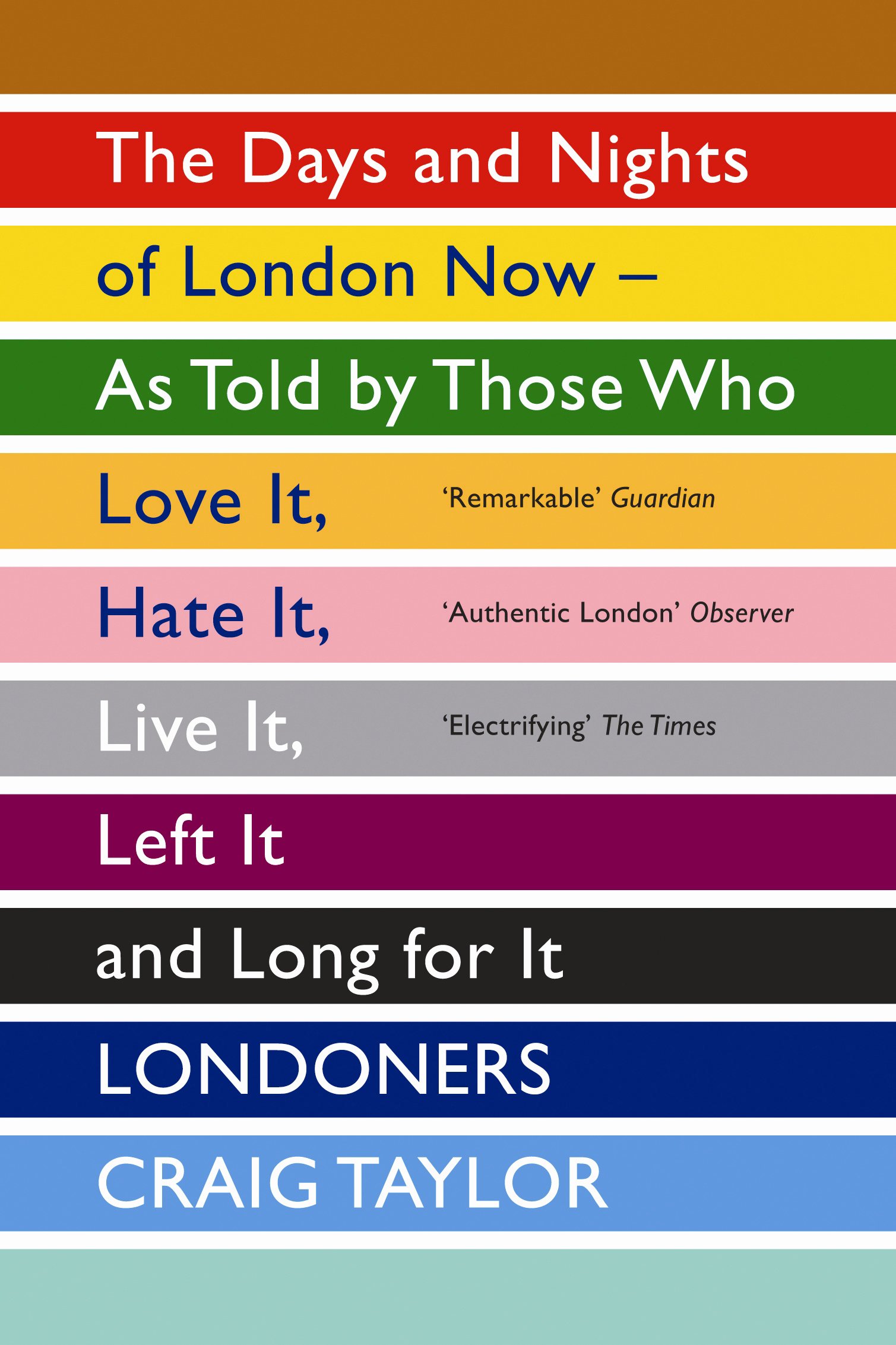'Londoners' by Craig Taylor

In keeping with my U.K. kick started with Robert Galbraith’s The Cuckoo’s Calling, which features a careworn private eye in London, I mixed in the nonfiction book Londoners: The days and nights of London now—as told by those who love it, hate it, live it, left it, and long for it.
Over the course of five years, author Craig Taylor, a Canadian who moved to London, collected stories from 200 people in or from his adopted city. Taylor gives us the best bits — and they are wonderful; each one a gem in its own right — in Londoners, a pastiche of anecdotes and reflections about what make this city of 8.5 million people one of the world’s most revered.
Take, for instance, the ruminations of Peter Rees, a planning officer for the City of London:
“You can’t pull out a sheet of paper and say how London should work. London already does work. It works in a way none of us understand. It’s so complex, so multilayered, so interrelated with places around the world and activities within itself. You have to look at how you can manage London, not plan it.”
Taylor presents a wonderfully well-rounded amalgam of views, including that of current and former Londoners, tourists, laborers, professionals and more. Most are labeled in the table of contents with what they do for a living; some are simply labeled “Londoner.”
There’s an entire section alone dedicated to London’s famously tough housing market. Taylor fills that section with narratives from an estate agent, property owner, property seeker, squatter, and longtime residents. In another interview, Taylor proves his dedication by following around market trader in the wee hours of the morning as the trader sorts out meat and produce purchases for his clients.
Taylor keeps his narration to a minimum, letting his interviewees’ words shine through in the same vein as Studs Terkel’s oral histories. Indeed, such is Taylor’s skill at drawing out his subjects’ thoughts that the memories they share are laced with color, humor and insight. Through their eyes, we explore issues of race, class, wealth and geography. We see the spectrum of emotions that London elicits: nostalgia, resentment, yearning, exhaustion.
Viewed as a whole, the reader begins to get a sense that living in London is a particular challenge and to overcome that challenge means simply to be living in London. The city is a cauldron of roiling energy coupled with ancient history, a place that offers rough edges and shiny corners that both repulse and beckon. Opines interviewee Michael Linington, a man leaving London:
The funny thing about London is how everything feels like it’s trying to push you out. So all these people are trying to get in, but the city itself and the infrastructures that have been created and the social issues, everything is trying to push you straight back out. Everyone’s trying to fight to get into the middle, but then there’s something in the middle that’s just trying to force everyone out and it’s saying, you’ve got to earn your place.
This book will ring true with anyone who’s dared brave London long enough to live there for any length of time. It’s also perfect for armchair travelers who wish to see the grit, the workaday and the fascinatingly prosaic behind the veil of London’s sheen and reputation.
Originally published to Moore Memorial Public Library blog, Moore Musings.